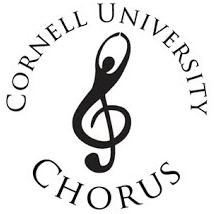Katie Forkey '19
Second things are forever underappreciated. No one looks forward to their second time moving out or their second car with keen anticipation. Second place is never quite worthy of celebration. We don’t remember the second person to discover the light bulb. And love at second sight is hardly romantic. Gone is the newness and thrill, the pride and pedigree that is reserved only for those rare and deserving firsts.
The weight of the dreaded second place was heavy on the night of our concert in Charlotte. After a seven hour bus ride, I sat at our second venue of the Atlantic Coast Tour, mindlessly taking in the beauty of the arched ceilings and stained windows of the church. The milestone of first concert had passed, and the excitement from the first day had disappeared along with the many hours of sleep intended for the past two nights. I rehearsed, ate, changed, and lined up with the rest of the Chorus, all relatively cheerfully and willingly, but not particularly zealously. The same feeling lingered as we walked out into the sanctuary and greeted the few audience members who had chosen choral music over the last game of March Madness (little did we foresee the dangers of performing in North Carolina on April 3, 2017). Nevertheless, there we were: we were given our first pitch, and began.
There is something about the making of music that cannot quite be captured by any explanation or imitated by any experience. I stood there looking out at our conductor and the dozen or so people behind him, surrounded by these fifty women who have so quickly become my comrades and friends. I felt the exhaustion palpable in the air, mingled with the eager but a bit wary anticipation of the eight more days to come. Now more than ever I could tell that this concert was in the place of the dreaded second. Yet together with these simple sentiments there was another, one that cannot quite be grouped in with them but still cannot be separated. It didn’t matter that my eyes were already demanding effort to stay open. It didn’t matter that I and everyone around me still smelled faintly like the bus. It didn’t even matter that we were beat out of an audience by basketball. The only relevant thing was the weaving and crafting of sound, the floor beneath us and the walls around us vibrating and echoing, the mingling of fifty one voices into one concise and articulate statement of beauty.
At times like this, one of my few remembered high school lessons comes back to me. There is something which the ancient Greeks dubbed “kairos”: undefined in our age, it comes closest to quantifying this strange melange of joy, excitement, satisfaction, and longing that we cannot quite grasp. It is the moment when the human meets the divine; the infinite instant that unites the mortal and immortal, the mundane and sublime. It is this kairos which makes music-making worthwhile. So often we say that the music is its own reward, but without kairos, without that euphoria of creation, that claim is empty. It is kairos which we attempt to communicate, not the sounds alone, when we perform. It cannot be stopped by exhaustion or apprehension or low attendance, because it is the very thing which dispels all three. That night in Charlotte, it certainly did. For with kairos there can be no seconds.
